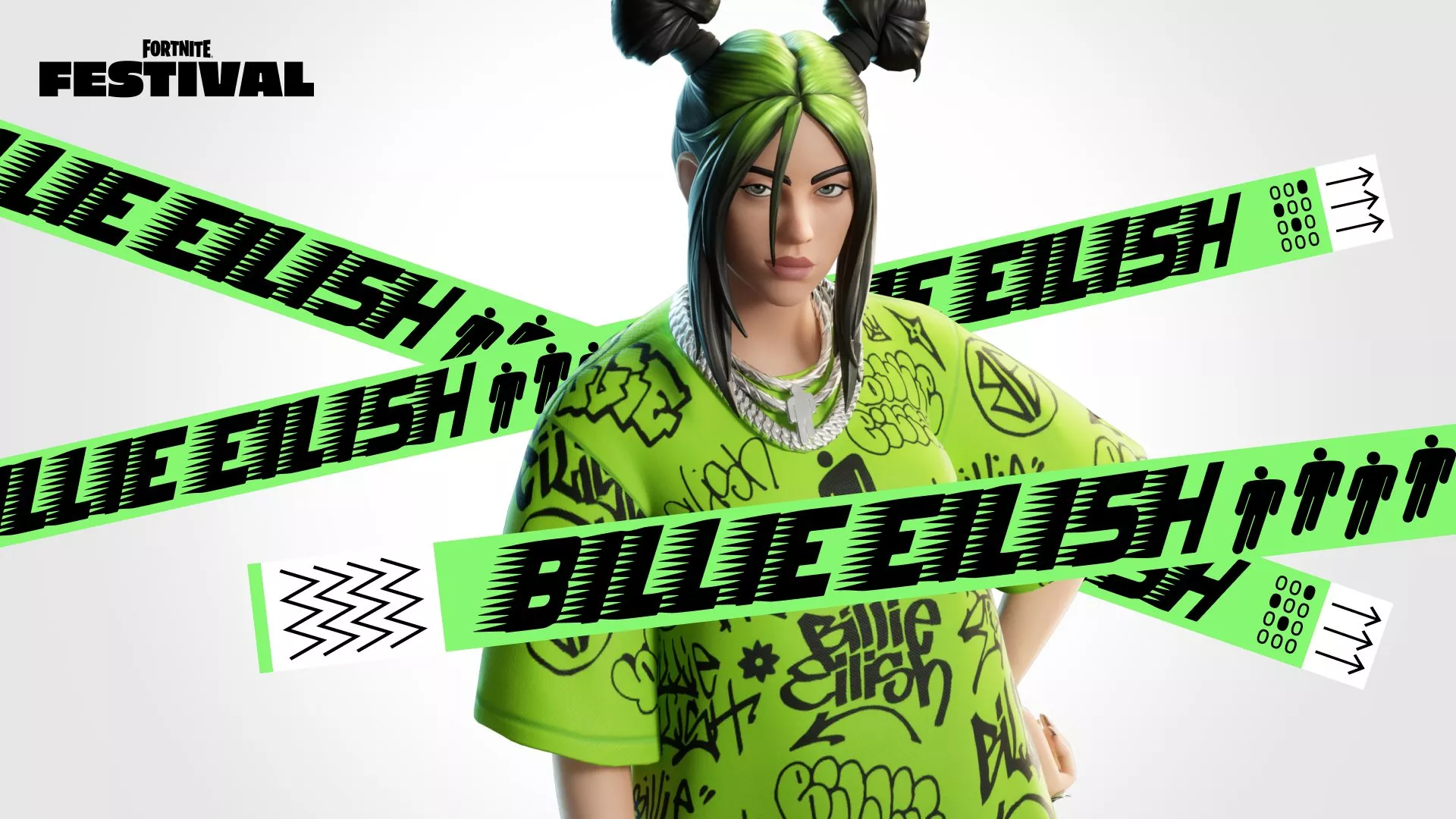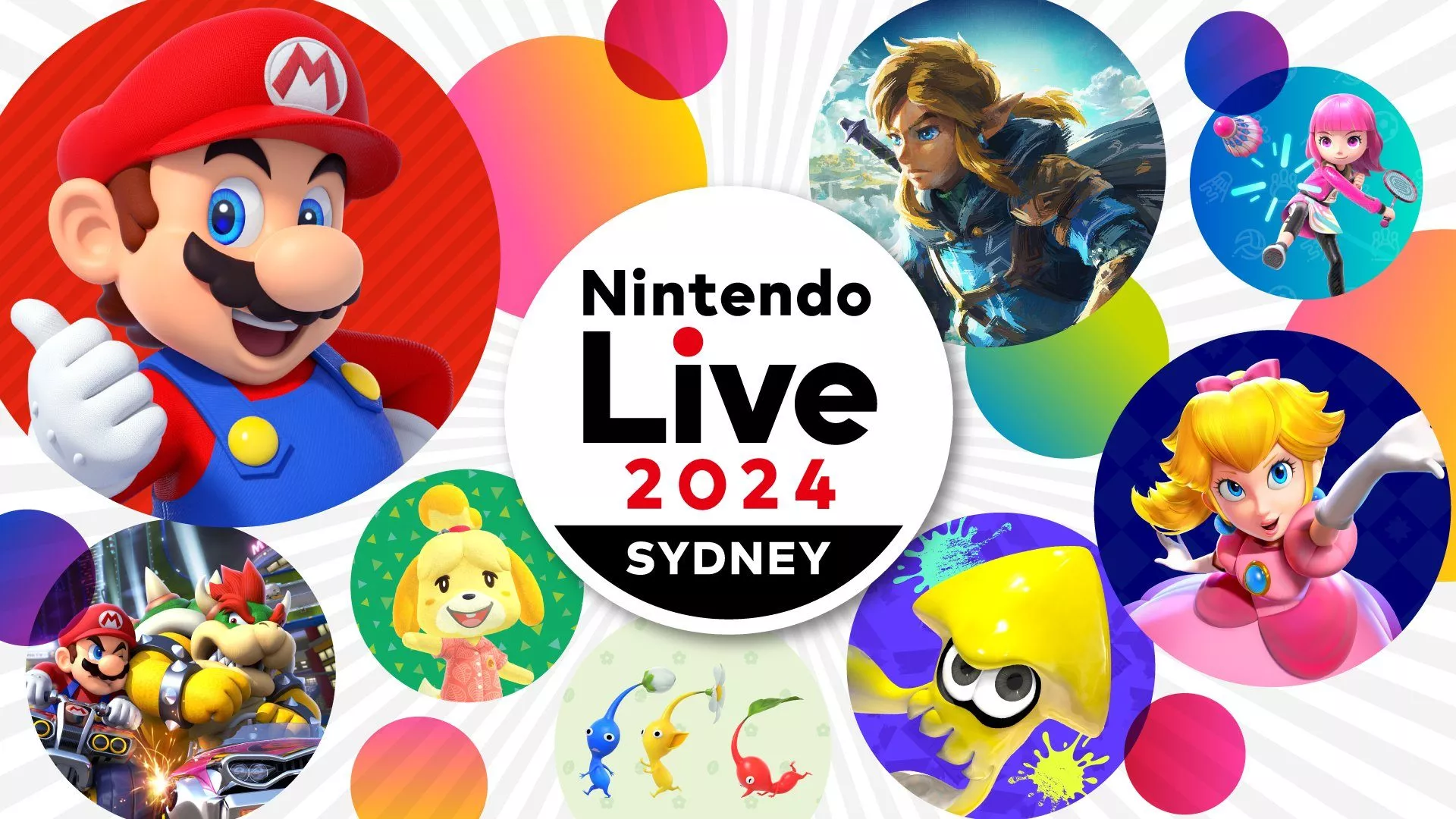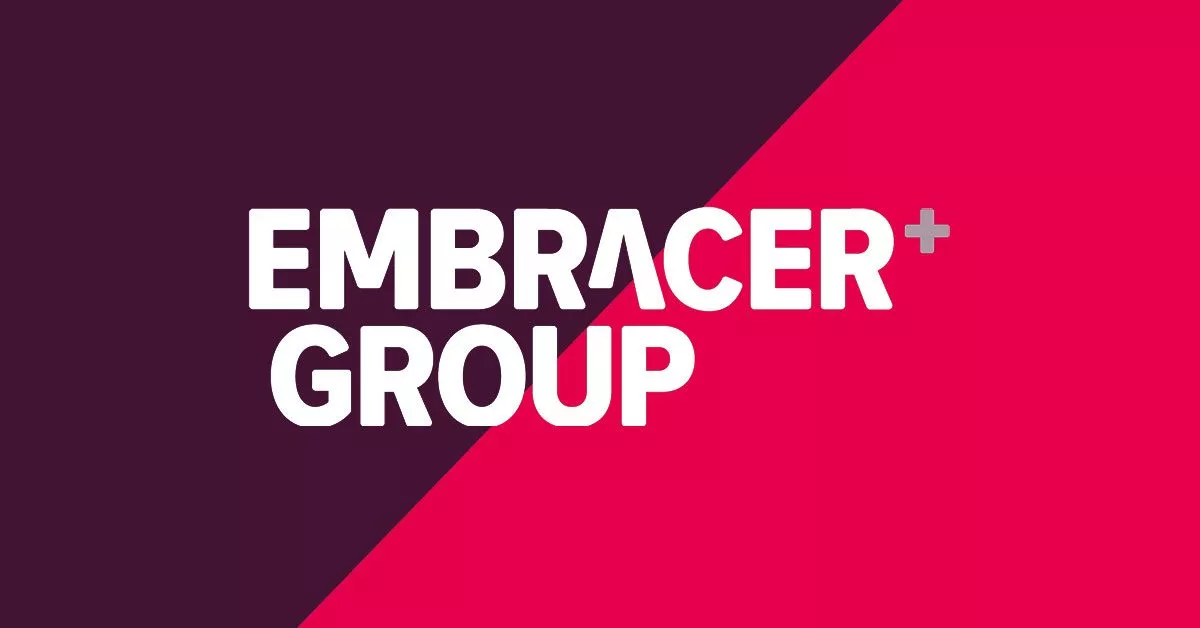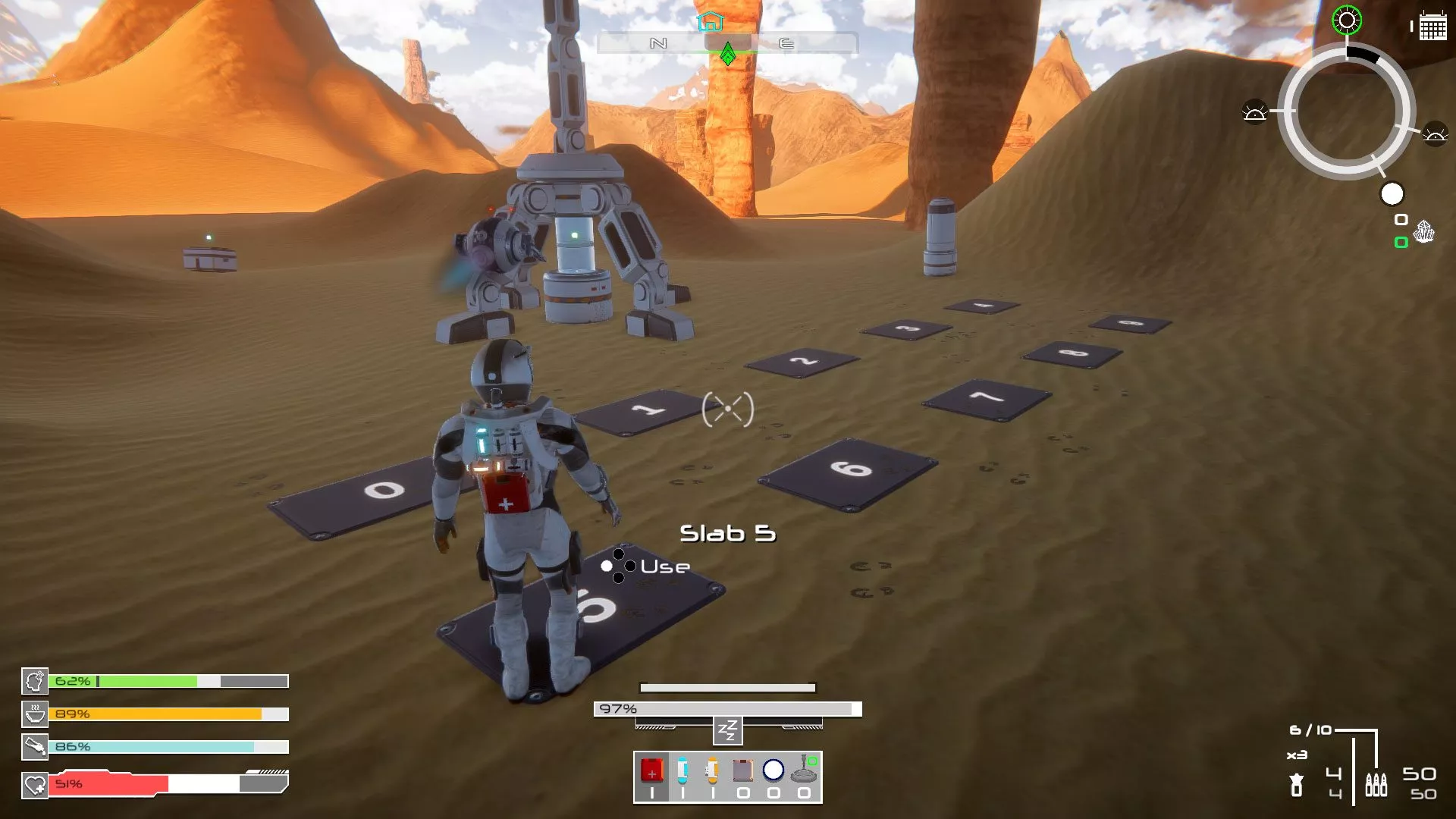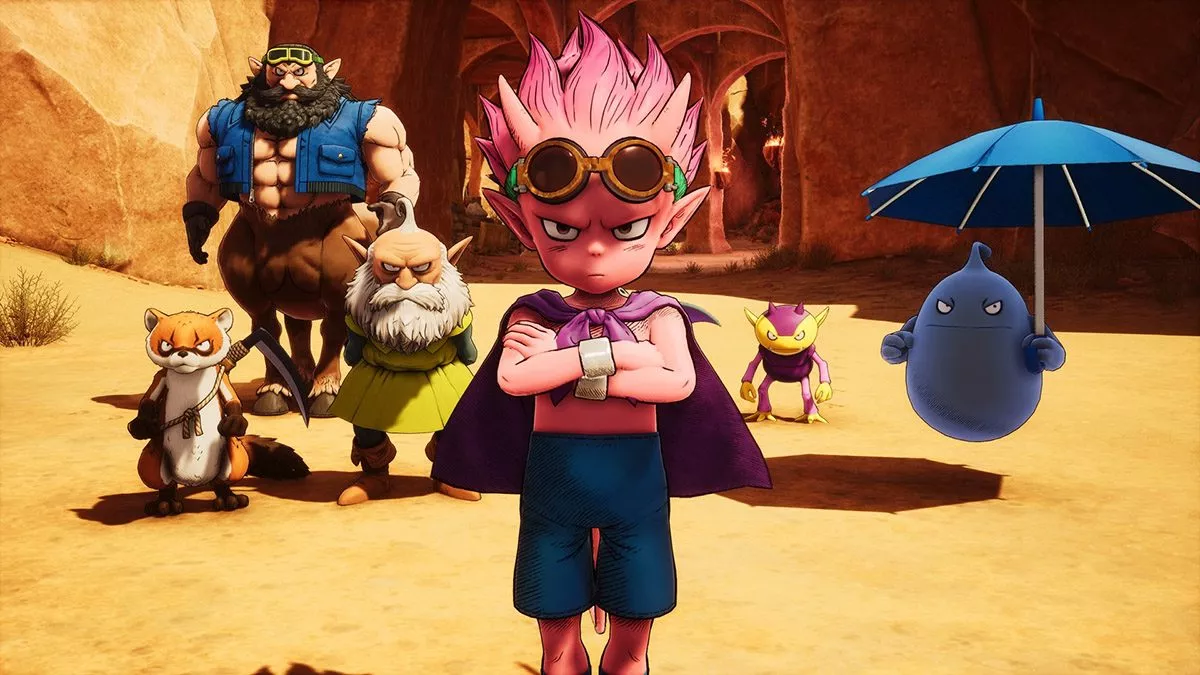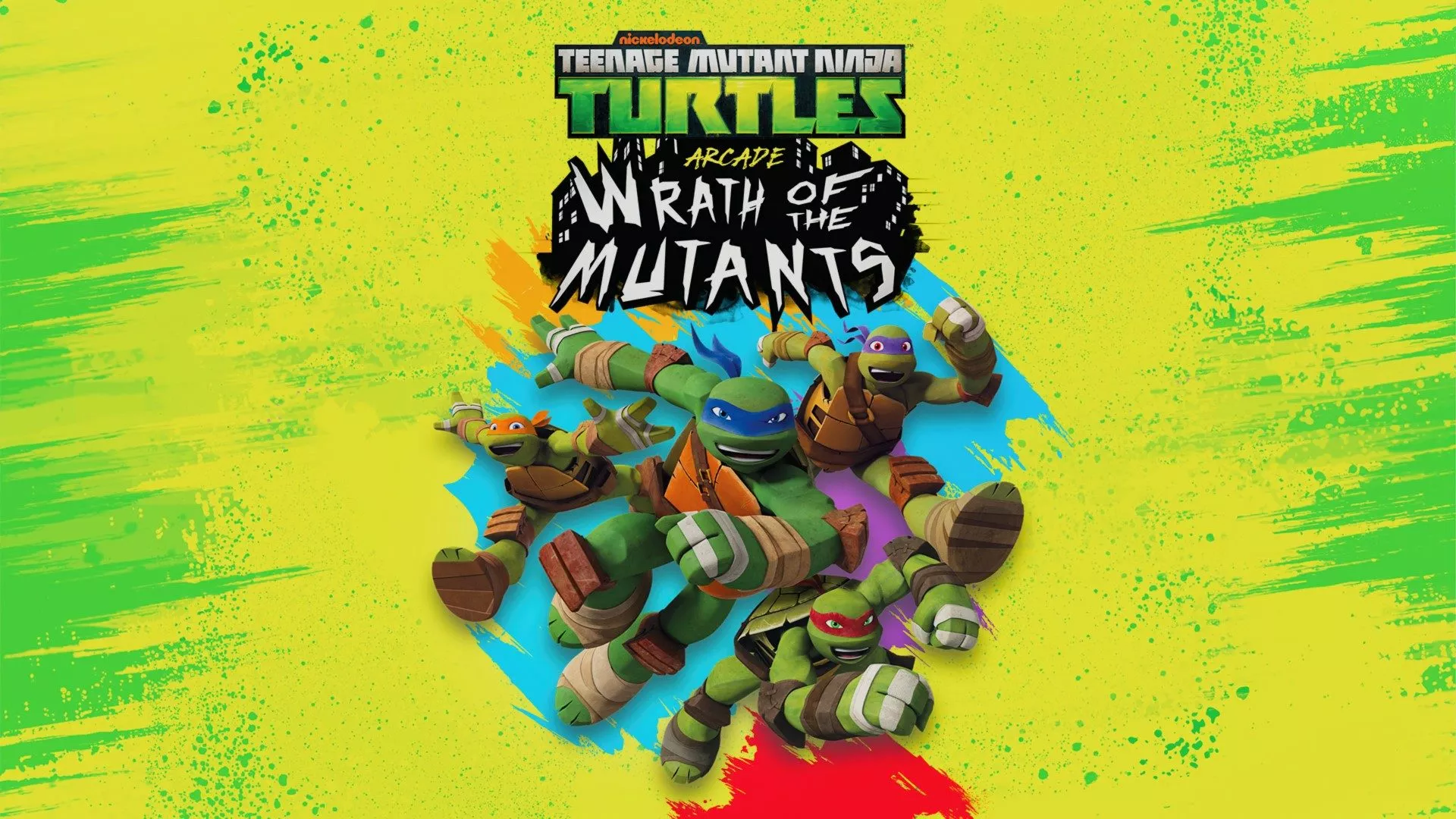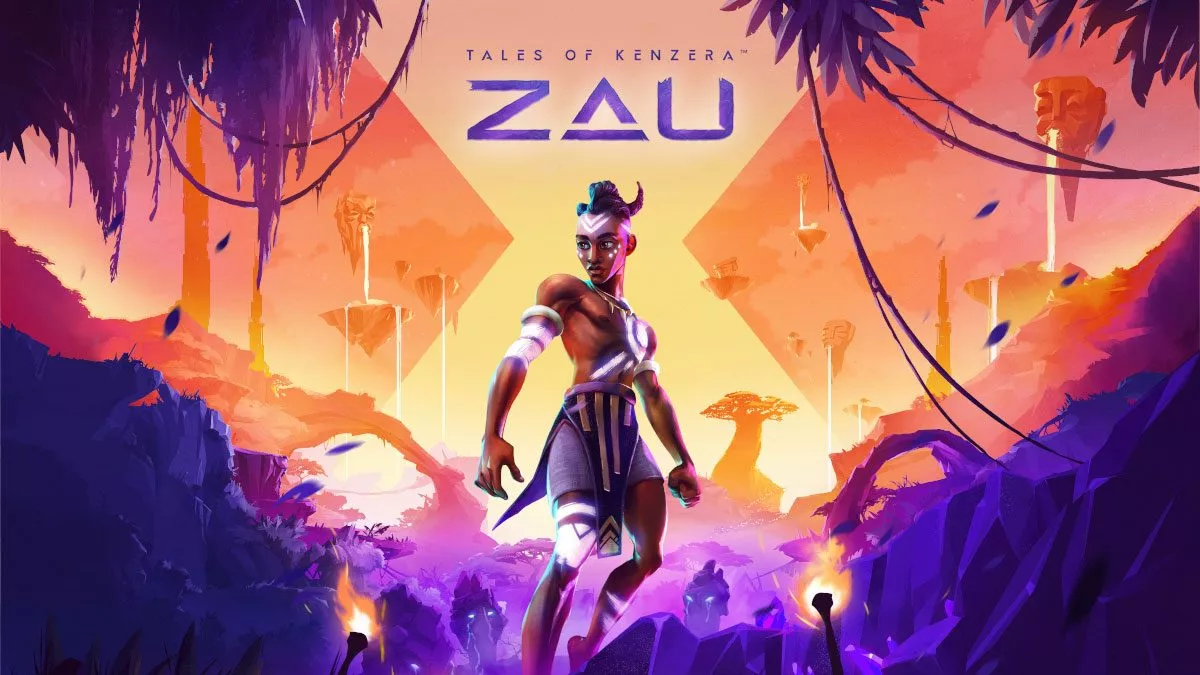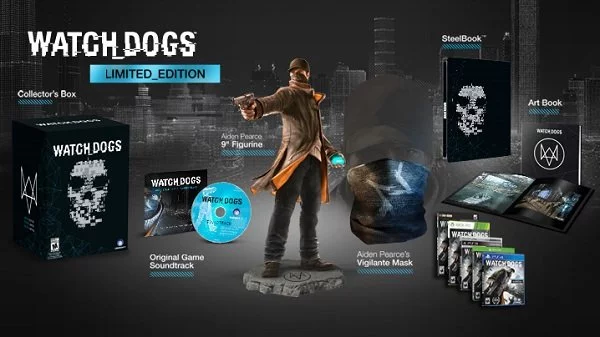Microsoft versus Sony, Battlefield versus Call of Duty and Forza versus Gran Turismo. These are some of the rivalries that can get people talking about console wars. “Game On or Game Over” is your place to get inside the minds of Nicholas and Andy as they seek to find the true meaning of gaming and tackle some of gaming’s most controversial subjects. Both are award winning authors – although the awards haven’t been mailed or created yet — but trust them. Would they lie to you?
Andy: There is a trend with new games that in my opinion is becoming more and more insidious and worrisome for me. We can all agree that video games are a billion dollar (or more) industry and everyone wants to stake their claim to as big of a piece of the pie as they can. So, retailers make deals with developers and publishers for “exclusive” pre-order bonuses. Console-makers strike deals with those same developers/publishers to get exclusive DLC or exclusive-timed DLC. On top of that, the publishers then make multiple editions of the game with varying degrees of extra content and sometimes even more versions depending on which region you happen to live in. In a world where we complain about day one and on-disc DLC it amazes me that gamers don’t hold developers and publishers more accountable.
You may be thinking to yourself “it’s really not that bad”, however I’d argue it is, and it may be even worse than what I’m making it out to be. Let me give you the most recent example that best defines what I’m talking about – Ubisoft’s Watch_Dogs. Don’t get me wrong, I really enjoyed the game and it lived up to my expectations, but there’s no denying that on launch, no one gamer had access to all the content that was available for the game unless they pre-ordered multiple copies from numerous retailers both brick and mortar and online and from overseas (regardless of where you live). I came across a graphic that really hit home when I sat back and looked at it. I haven’t seen any other charts like this for other games but I’d imagine it’s similar across the board.
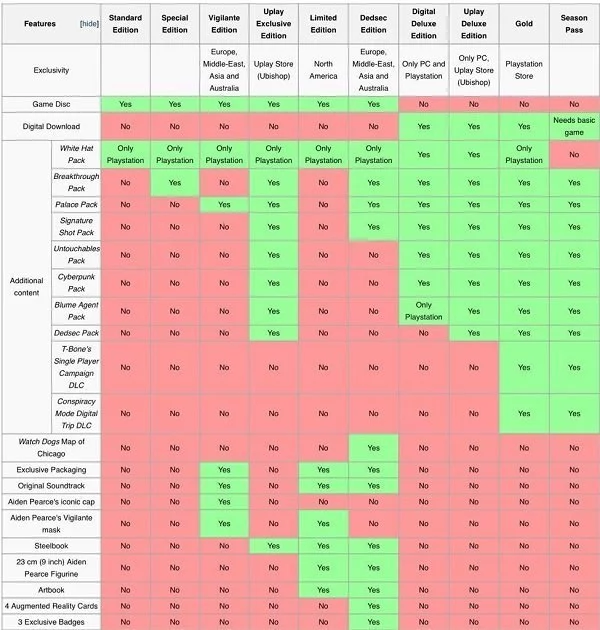
Now, add to that the news which came out last week about GameStop wanting to partner with developers during the actual development phase of games to be able to offer better pre-order incentives to those who pre-order from them. They also hope that in the future they can move to offering exclusive gameplay as well. This whole thing makes me increasingly worried about where this will all end. It already sucks that I have to decide where to pre-order a game I know I’m going to get based on what “exclusive” content each retailer is offering, but if this goes through and gets to the point GameStop is hoping, I will also have to look at what gameplay content is where so that I can get as much of the game as I can. The full retail price of $60 US no longer gets you the complete release day game. Have we really come to a point as gamers where when we pick up a game on release day, depending on where we get it from, we are no longer getting a full game? Is this practice by retailers/developers/publishers one that gamers should be more concerned about?
Nicholas: It was only a matter of time until this topic came up. As a kid I never used to bother with pre-ordering – it was either when I heard about a new game from friends or when I saw the commercial on television that I’d ask my parents to take me to the local shopping center and buy whatever the newest Nintendo game was. Really, it wasn’t until the Xbox 360 and limited editions that I started to worry about securing a copy of an upcoming game. Initially though, pre-ordering seemed innocent. I’d walk up to a retailer like EB Games, ask if they had a limited edition for whatever title I was looking forward, and if they did, I’d put $10 down. Whether I visited EB Games, JB Hi-Fi or GAME was just down preference – which of the three had nicer staff and which had the cheaper price.
Then exclusives happened.
Putting aside limited editions, pre-order bonuses initially only went as far as multiplayer perks – perhaps a new map or some kind of character skin. This didn’t bother me if I’m honest (being a single-player gamer), but it was when this started to affect campaign content that I started to find a fault with this new trend. Whether I purchase a game from EB Games or JB Hi-Fi now isn’t a matter of which is cheaper, but which offers the most content, and you’re completely right – we’re getting to a stage where $60USD or $100AUD doesn’t mean buying the full game. Granted yes, each gamer is still receiving the same core gameplay experience, but it’s a little disheartening to know that not only can I miss out on perhaps one hour of additional missions in the next Assassin’s Creed game because I bought an Xbox One over a PS4, but now I can potentially miss out on even more because I’m buying games from one retailer and not the other. That just seems off.
As with any ‘new’ practice, whether it be a freemium price model, microtransactions or DLC, gamers should be wary, and I think this new ambition from GameSpot should be on gamer’s radars. I don’t want to make mountains out of molehills just yet, but it’s something that gamers as a whole should monitor in the coming years. What do you think? In Australia there are only two major video game retailers – EB Games and JB Hi-Fi. While we have stores like David Jones, Target and Big W, neither offer exclusives like the former do. Do you think this such a move by GameStop is going to further hamper competition?
Andy: I’m worried about these type of things from GameStop not because I think they will necessarily hamper competition, rather I’m worried that it will only increase other retailers to one-up what GameStop is doing. I am usually an optimistic person when it comes to new trends and the like. Yet, I am actually really concerned about this development. It just seems like more and more content is being taken out of games and gamers made to jump through hoops to get it all. Look at Ubisoft and the deals they have in place with Sony. Watch_Dogs and Assassin’s Creed have both had an hours’ worth of gameplay not available to gamers who choose to play on Microsoft consoles. So in this retailer specific bonus paradigm, even if you play on a Sony platform depending on what retailer you pre-order a game from you still won’t have all the content for the game the day you buy it. Imagine walking into Borders/Dymocks and picking up a book only to find out “tht vry vwl n th bk s mssng, nlss y prchsd t frm Brdrs/Dymcks.” (that every vowel in the book is missing, unless you purchased it from Borders/Dymocks). Sure, you may be able to get a general understanding of the book, but I’d be willing to bet it wouldn’t be the same experience as the one with all the letters in it.
OK, I realize that is an extreme and off the wall example but think about it for a minute. There are already several retailers here in the US that routinely have their own pre-order bonuses; Wal-Mart, Best Buy, GameStop, Amazon and Target. Assuming that you pre-ordered your game from one of those five – that means by default you are already missing four pieces of content and that’s not even taking into account the platform you get it on. Sure some of the pre-order bonuses may be trivial such as a skin pack, a weapon that’s only good for the first level or two before you find something better, or other random visual content. Where do we draw the line though? If GameStop follows through on this current plan then a retailer will be directly influencing the actual content in a game and I don’t think I’m OK with that. We then get on a slippery slope of what is OK for GameStop to use as incentives to get gamers to buy from them? What’s to stop Best Buy from doing the same thing with the same game? We are suddenly left with a pizza that is missing pieces but we are still expected to pay the same price for that pizza. Sorry pepperoni is only available if you buy the pizza from Pizza Hut.
You could argue that the price of a retail game (not a limited edition or collector’s edition) hasn’t gone up for quite a while, whereas development costs have certainly risen. That’s one argument for the plethora of DLC and microtransactions we are seeing. The thing about that though is I can choose to pass on it or get it if I want. All these pre-order bonuses do is force gamers to guess which edition is the “best one”, when in reality they really can’t tell. I remember when Fable 3 came out, there was a retailer specific bonus that I had gotten and installed. I went to play co-op with a friend and got a message stating that we have different downloadable content and therefore couldn’t connect to each other. I had to delete the content just to play in the same game with him. That’s the type of thing that has me very worried about this type of move. Going back to the GameStop example though; do you think a retailer should have any input during the development of a game? In your opinion is that something gamers should be hyper sensitive about?
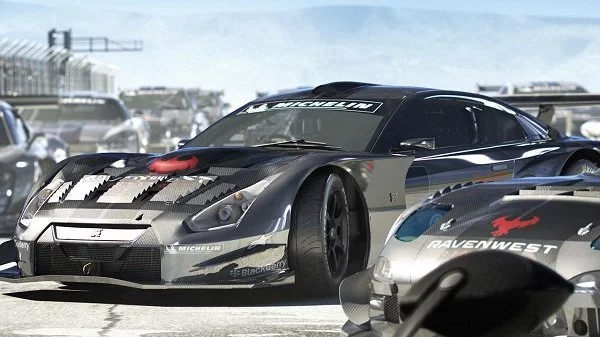
Nicholas: I remember something similar with Saints Row 2 – if you didn’t have the same DLC packs then you couldn’t participate in online modes with other friends. Regarding this specific issue, it shouldn’t be a problem anymore. Developers should figure out how to release patches that allow all people to play with each other as long as they own the same game on the same platform. Sure, some features will obviously be disabled, but it seems silly that just because you have some DLC that I don’t, that we can’t play the same base game together.
To answer your question though – absolutely. When we discussed publisher’s influence on game development in a previous article we talked about how damaging this could be (and sometimes is), and there’s no doubt that retailers getting their hands involved in this stage is only a bad thing. As with any entertainment project – a film, television series or album – too many people dictating what the final product should be will only result in it being nothing like what the developer envisioned. If a game is a development team’s vision, I’m sure they wouldn’t like a publisher and then a random retailer asking them to make changes.
I wonder though, is this all just another example of where gamers want this industry to remain the same, but where this very same practice is happening all around us? Think about the last time you visited your local supermarket. Whenever I browse through the isles at Woolworths I see that some products are made in exclusive qualities. For example, where the standard size bag for Pods (a chocolate snack) is 500g, Woolworth has some that are 700g. Woolworths also sells different soft and fruit drinks at higher quantities that you’d get at Coles for example. In this example, Woolworths are speaking with the manufacturers of these goods and asking them to provide special sizes exclusively for their chains. With GameStop planning to negotiate exclusive content for titles that are bought at their stores, are they only doing what any good business would, and is becoming involved in more than just selling what they’re offered from publishers? Is there any reason why the games industry shouldn’t act like any other in the marketplace?
Andy: I don’t think this is a case of gamers resisting change, or wanting to keep everything the same as it’s been. First, I think most gamers are open to change if there is a discernable reason for the change, or if it benefits them in the end. An example is DLC and micro transactions, where many gamers purchase one or the other, and sometimes both, for games. It’s a fairly accepted practice and helps keep the initial price of a game stable. Second, it’s not the gamers that are changing how they get their games and what’s included. This whole exclusive pre-order bonus and GameStop’s quest to influence the development of a game is something much more than that. Imagine going to a Mazda dealership and buying a 6 cylinder engine car only to be told since you didn’t get it from a certain dealership your car only has 4 cylinders but you have to pay the same price as the 6 cylinder car.
I have been trying to think of another industry where consumers are expected to pay full price for an item or service only to have a piece of that item/service unavailable to them. In your example of the Pods I’d assume that the 500g bag is slightly cheaper than the 700g bag. I think that’s my biggest contention with pre-order bonuses and exclusive content – it’s that we are all expected to pay the same price, but as the Watch_Dogs example proves we don’t all get the same amount of content. Sure there’s always the possibility of those “exclusive bonuses” being released as paid DLC a month or two after the game is released. The reality of that though is it’s an added expense onto the price of a game, and then add onto that the normal slew of DLC for a game and it quickly gets out of hand.
Here’s the thing though. Pre-orders are the gold standard now for developers/publishers/and retailers they all look for any reason to get gamers to drop $5-$10 on a game that’s not even out yet. Sure most gamers know something about the game they are pre-ordering, but they never know if it’s going to be good or not. Day one sales are a huge deal for most games, upwards of 50% of the games sales usually take place in the first month of release. So, I see the reason for everyone involved to turn over those pre-orders. Yet, as often the case if a gamer can wait just a little while they can almost always catch a good deal. With the 360 I bought almost every game I wanted right away within the first week. Sure I got burned on a couple of them and some I didn’t like as much as I thought, but it was a habit. With the newest generation I am finding myself being more picky, partly due to the issue we’re talking about but also because it seems that within a month or two it goes on sale. I can wait a little bit to play a game, no? Look at Wolfenstein The New Order – it came out at $60 and this past week, brand new, was $39. Is waiting a month to play a game worth $20? In most cases I think it is.
So, developers, publishers, and retailers want those pre-orders and those first week sales… yet they purposely remove content from a game and force gamers to pick and choose where they get their games. Is it just me or does that see counter-intuitive to you? In my opinion gamers that get the game with in the first week should be the ones getting the additional content as a thank you for supporting the game at launch not this varying levels of content depending on where you get the game. Is that too idealistic of me to think like that? Do you think that’s something gamers would support and get behind?
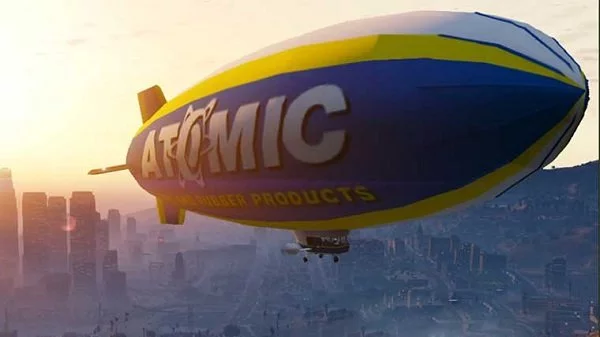
Nicholas: As much as I don’t agree with the practice, gamers are still being ‘treated’ for pre-ordering games. If you take a look at someone who pre-orders a game and receives an hour of additional content or a special weapon back, and then contrast that to someone who waits a month and doesn’t receive any of the additional content, the person who pre-orders is still on-top. Does that mean that the person who pre-orders has the complete game? Not anymore. Does that still mean that people who pre-order get more? Yes. Along with special editions, this is the reason people still pre-order. You and I (and other gamers) will find it irritating that it’s getting increasingly difficult to obtain a ‘complete’ game, but because we can get that little bit extra if we put $10 down, we do it.
It pains me to say this, but I do think it is too idealistic to still think that just because you spend $60USD on a game that you’ll get everything there is for it. The industry just isn’t in that position anymore – pre-order bonuses mean that those who wait to buy games after they are launched will miss out, (pre-order) exclusives mean that if you buy games on a certain console that you’ll miss out, and DLC means that despite spending what was once full-price for a complete game, you’ll still need to for out at least half of that again for expansions and DLC packs. It would be nice if gamers rallied together and tried to support this, but as long as people are willing to continue pre-ordering and buying DLC, it’s going to continue on the path that it is.
Moving on, I noticed an announcement that was recently made by Insomniac Games (developers behind the upcoming Sunset Overdrive) detailing that their game was going to be the first title that you could pre-order digitally. This made me think about Microsoft’s initial plans when the Xbox One was first announced to move towards digital distribution as opposed to relying on brick and mortar retailers. Assuming this is the future that console gaming should be moving to, are these plans by GameStop only preventing the industry from moving forward? While it’s of course unrealistic to ever think that digital distribution will kill the physical game store, do you think there’s a chance that with Sunset Overdrive is achieving, that these stores are going to lose the obvious influence they are starting to have on this industry?
Andy: Before I move onto the last part of your response there I want to point something out that I’m not sure you intended or not. In your second paragraph there’s a theme there “missing out”. It seems that no matter what choice a gamer makes; who they get the game from, where they get the game from or when they get the game that they are always missing out on something. That just really strikes a nerve with me. I can understand if we were talking about limited editions or collector’s editions but with a retail copy no-one should be missing out on anything regardless of where they choose to get the game. It feels like a collaboration between publishers and retailers to take away rather than reward, and that’s a very unsettling feeling.
I’m going to go against conventional console gamer wisdom here and say I’d support a digital model if, and that’s a big if, they make it worth it. Right now there’s literally no incentive to go digital on consoles. Pay the same price as retail, when there is no game/manual/case to print, and not be able to borrow the game to a friend or trade it in for something different down the road. Since we are talking about pre-ordering though, here’s the thing with digital pre-orders – you’re still losing out. All those retailer specific bonuses go out the window. You want that GameStop exclusive “Nothing but the Hits” gun? Gone if you pre-order digitally. Want that “Hotty Shotty” gun from the Amazon pre-order bonus? Gone if you go the digital route. But hey, you can still pay the full retail price for it, you know so it’s the same across the board. I can see it now though on the Xbox Marketplace – “Pre-order the digital copy of <insert random game here> and receive the exclusive pre-order bonus sponsored by <insert whichever retailer paid the most>.”
When I think about these pre-order bonuses, exclusive content on one system or another and timed “exclusive” DLC, I just see an image of retailers and publishers twisting the bloody corpses of gamers trying to wring every last cent out of them as they can. There’s a local boat dealership commercial here that has a tag line of “I’d rather sell lot of boats for less than one boat for a whole lot more.” It seems like the gaming culture just wants, wants, wants. Too often gamers are treated like ATM machines versus partners in the process. It’s odd to me that gamers haven’t taken a bigger stand against this practice, as evidence by it increasing with each new game. It’s one thing to have a free-to-play model where, as a gamer, you expect to be charged for almost everything. It’s another thing to pay that full retail price and still be nickel and dimed. To close out this week’s article though, what do you think it will take for the community to put the brakes on this practice? Is it something as simple as not getting a game the first week, or should it be something more meaningful such as having a conversation somehow with these companies and talking about it? Better yet, is it even worth trying or will it fall on deaf ears because they are full of money?
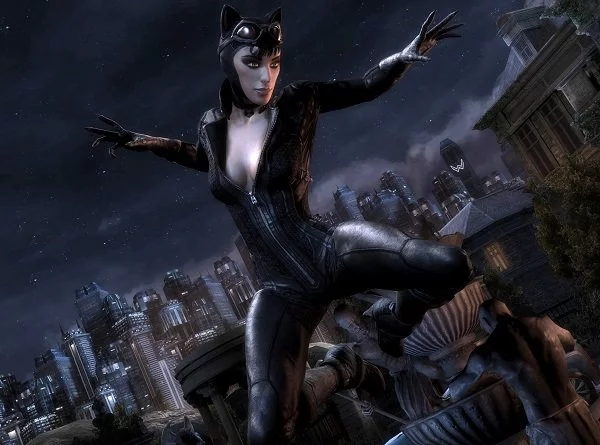
Nicholas: It would need to be something significant before the entire gaming community decide to tackle this as a major issue. As I mentioned before, these ‘exclusives’ are usually just weapon skins, multiplayer maps or additional perks for online modes, so it isn’t too bad right now. With some games we’re seeing this exclusive content creep into single-player, but it’s usually just a random mission or two and nothing that’s going to ruin the overall experience. If GameStop are successful though, and if the content they manage to negotiate with developers is significant enough that the gaming experience is noticeably different between different versions, then I think we’ll start to see more people speak out about it.
Actually, you know what? Who are we kidding? We can talk about GameStop going too far and we can talk about how this has the potential to ruin gaming, but as with all new practices that seem to take this passion of ours down a new and dark slope, it’s unlikely anything will change. Retailers like GameStop and EB Games have exclusive DLC and editions because they have a stranglehold on the industry, so no matter how much you, I or others might dislike it, there’s little we can actually do. As we’ve mentioned in the past, gamers still buy games and support these companies even when their practices might seem dodgy because as much as we don’t like it, we’d rather put up and play, than miss out with our arms crossed. Here’s hoping GameStop have good prices hey?
Tune in next time for the next instalment of Game On or Game Over. If you have any ideas for our next article, feel free to contact Andy or Nicholas on Twitter.
This article may contain affiliate links, meaning we could earn a small commission if you click-through and make a purchase. Stevivor is an independent outlet and our journalism is in no way influenced by any advertiser or commercial initiative.


